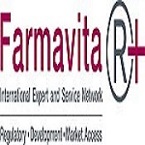Sessions and Tracks
Advances in Mental Health Research explores the latest breakthroughs in understanding, diagnosing, and treating mental health disorders. This conference track highlights cutting-edge studies in neuroscience, psychology, pharmacology, and digital health technologies. It focuses on innovative approaches such as precision psychiatry, brain imaging, genetic insights, and AI-based mental health tools. The track aims to foster collaboration among researchers, clinicians, and policymakers to translate findings into effective, personalized care. Emphasis will be placed on early intervention, prevention strategies, and addressing global mental health disparities, making this an essential platform for shaping the future of mental healthcare.
Track 2 : Psychotherapy and Evidence-Based Counseling
Psychotherapy and Evidence-Based Counseling are vital components of modern mental health care, focusing on scientifically validated approaches to treat emotional, cognitive, and behavioral challenges. This conference track will explore emerging trends, clinical applications, and integrative techniques that bridge research with therapeutic practice. Emphasis will be placed on modalities such as Cognitive Behavioral Therapy (CBT), Dialectical Behavior Therapy (DBT), and mindfulness-based interventions, highlighting their effectiveness through empirical data. Attendees will gain insights into how evidence-based counseling enhances client outcomes, supports individualized care, and adapts to diverse populations and settings. This track welcomes researchers, clinicians, educators, and policymakers committed to advancing mental health care.
Track 3 : Neurobiology and Brain Disorders
Neurobiology and Brain Disorders explores the structure, function, and development of the nervous system alongside the pathological mechanisms underlying neurological diseases. This track covers cutting-edge research on brain function, neural circuits, neurodegeneration, neuroinflammation, and genetic factors influencing brain disorders. It emphasizes translational approaches aiming to improve diagnosis, treatment, and prevention of conditions like Alzheimer’s, Parkinson’s, epilepsy, stroke, and psychiatric disorders. Attendees will gain insights into innovative therapies, neuroimaging advances, and molecular neuroscience, fostering collaboration between neuroscientists, clinicians, and researchers to enhance brain health and patient outcomes worldwide.
Track 4 : Childhood and Adolescent Mental Disorders
Childhood and Adolescent Mental Disorders focus on the identification, diagnosis, and treatment of psychological conditions affecting young people. This track explores common disorders such as anxiety, depression, ADHD, autism spectrum disorders, and behavioral issues, emphasizing early intervention and support strategies. It highlights the impact of mental health on development, education, and social functioning, and promotes multidisciplinary approaches involving families, schools, and healthcare providers. Advances in research, innovative therapies, and policy developments aimed at improving mental wellness and reducing stigma in youth populations are also key themes of this conference tract.
Track 5 : Geriatric Psychiatry and Cognitive Disorders
Geriatric Psychiatry and Cognitive Disorders focus on the mental health challenges affecting the elderly population, including dementia, Alzheimer's disease, depression, and anxiety. This conference track explores the latest research, diagnostic methods, and treatment strategies to improve quality of life and cognitive functioning in older adults. It addresses the complex interplay of aging, neurological changes, and psychiatric conditions, highlighting innovative approaches in clinical practice, pharmacology, and psychosocial interventions. Emphasis is placed on early detection, prevention, and multidisciplinary care models to support healthy aging and manage cognitive decline effectively.
Track 6 : Co-occurring Disorders and Dual Diagnosis
Co-occurring Disorders and Dual Diagnosis track explores the complex interplay between mental health disorders and substance use disorders occurring simultaneously in an individual. This session highlights integrated approaches to diagnosis, treatment, and management, emphasizing the importance of coordinated care to improve outcomes. It covers challenges in identifying dual diagnoses, evidence-based therapies, and innovative intervention strategies. Participants will gain insights into holistic patient-centered models, aiming to reduce relapse rates and enhance recovery. The track fosters collaboration among clinicians, researchers, and policymakers to advance understanding and effective treatment of co-occurring conditions.
Track 7 : Personality and Mood Disorders
Personality and Mood Disorders encompass a range of mental health conditions characterized by enduring patterns of thoughts, emotions, and behaviors that significantly impact daily functioning. Personality disorders involve rigid, maladaptive traits affecting interpersonal relationships, while mood disorders primarily affect emotional states, including depression and bipolar disorder. Understanding their complex etiology, diagnosis, and treatment is crucial for advancing mental health care. This conference track will explore recent research, innovative therapeutic approaches, and integrative models addressing these disorders to improve patient outcomes and quality of life. Experts will share insights into genetics, neurobiology, and psychosocial interventions shaping future clinical practice.
Track 8 : Trauma and Stressor-Related Disorders
Trauma and Stressor-Related Disorders encompass a range of mental health conditions triggered by exposure to traumatic or stressful events. These disorders include Post-Traumatic Stress Disorder (PTSD), acute stress disorder, and adjustment disorders, among others. They involve emotional, cognitive, and physiological responses that significantly impact daily functioning. Understanding their neurobiological mechanisms, diagnostic criteria, and effective therapeutic interventions is crucial for improving patient outcomes. This conference track will explore recent research advancements, clinical practices, and innovative treatment strategies aimed at prevention, early identification, and comprehensive care for individuals affected by trauma and stress-related disorders.
Track 9 : Anxiety and Obsessive-Compulsive Disorders
Anxiety and Obsessive-Compulsive Disorders (OCD) are prevalent mental health conditions characterized by excessive worry, fear, and repetitive behaviors. Anxiety disorders involve persistent feelings of unease and apprehension, impacting daily functioning, while OCD is marked by intrusive thoughts (obsessions) and compulsive actions aimed at reducing distress. This conference tract explores advances in understanding their neurobiological basis, diagnostic challenges, and innovative therapeutic approaches, including cognitive-behavioral therapy and pharmacological treatments. Emphasis will be placed on improving patient outcomes, early intervention strategies, and integrating holistic care models to address the complex interplay of psychological, genetic, and environmental factors driving these disorders.
Track 10 : Schizophrenia and psychotic disorders encompass
Schizophrenia and psychotic disorders encompass a group of severe mental health conditions characterized by distorted thinking, perceptions, emotions, and behavior. Symptoms often include hallucinations, delusions, disorganized speech, and impaired cognitive function. These disorders significantly impact social, occupational, and personal functioning. Current research focuses on understanding their complex neurobiological basis, early diagnosis, innovative treatment strategies, and psychosocial interventions. Advances in genetics, neuroimaging, and pharmacology offer promising insights into personalized care. This track invites contributions exploring clinical, experimental, and translational studies aimed at improving outcomes and quality of life for individuals affected by these challenging disorders.
Track 11: Mental Disorders and Chronic Illness
This track explores the complex interplay between mental disorders and chronic illnesses, highlighting how conditions like depression, anxiety, and bipolar disorder often coexist with long-term physical diseases such as diabetes, cardiovascular disorders, and autoimmune diseases. It aims to deepen understanding of their bidirectional impact on patient health, treatment outcomes, and quality of life. Emphasizing integrated care approaches, the track encourages research on early diagnosis, multidisciplinary management, and innovative therapies. Attendees will gain insights into improving holistic patient care by addressing both psychological and physiological aspects to enhance recovery and well-being.
Track 12 : Women’s Mental Health
Women’s Mental Health is a vital conference track focusing on the unique psychological, social, and biological factors affecting women’s mental well-being. It explores issues such as hormonal influences, reproductive health, postpartum depression, anxiety, eating disorders, and the impact of gender-based violence. This track emphasizes the importance of tailored mental health interventions and holistic care approaches. Discussions will cover advances in research, clinical practices, and policies aimed at improving mental health outcomes for women across different life stages. Addressing these challenges is essential to promoting equity and enhancing quality of life for women worldwide.
Track 13 : Suicide Prevention and Crisis Intervention
Suicide Prevention and Crisis Intervention focuses on strategies and support systems designed to identify, assist, and reduce the risk of suicide. This track highlights evidence-based approaches, early detection methods, and timely crisis response to save lives. It explores psychological, social, and community factors influencing suicidal behaviors, emphasizing multidisciplinary collaboration among healthcare providers, counselors, and support networks. The goal is to promote mental health awareness, reduce stigma, and implement effective intervention protocols to help individuals in crisis. This topic is vital for improving public health outcomes and fostering resilience in vulnerable populations.
Track 14 : Mental Health in Disasters and Humanitarian Settings
Mental Health in Disasters and Humanitarian Settings focuses on addressing the psychological impact faced by individuals and communities affected by natural disasters, conflicts, and crises. This track explores strategies for providing timely mental health support, resilience-building, and trauma-informed care amid challenging conditions. It highlights the importance of integrating mental health services into emergency response plans, promoting community-based interventions, and overcoming barriers such as stigma and limited resources. By fostering collaboration among health professionals, humanitarian workers, and policymakers, this theme aims to improve mental wellness and recovery outcomes for vulnerable populations in disaster and humanitarian contexts.
Track 15 : Innovations in Psychopharmacology
Innovations in Psychopharmacology explore the latest advancements in drug development, targeting mental health disorders with improved efficacy and safety. This track highlights novel therapeutic agents, personalized medicine approaches, and cutting-edge technologies such as pharmacogenomics and neuroimaging to optimize treatment outcomes. Discussions include breakthroughs in understanding drug mechanisms, reducing side effects, and addressing treatment-resistant conditions. Emphasizing interdisciplinary research, this area also covers emerging strategies like digital therapeutics and novel delivery systems, aiming to enhance patient quality of life and transform mental healthcare. This topic invites researchers, clinicians, and industry experts to share pioneering insights shaping the future of psychopharmacology.
Track 16 : Stigma and Advocacy in Mental Health
Stigma and Advocacy in Mental Health focuses on understanding the negative stereotypes and social prejudices that surround mental illness, which often lead to discrimination and barriers to care. This track explores strategies to challenge and reduce stigma through education, public awareness, and community engagement. It emphasizes the role of advocacy in promoting mental health rights, improving access to services, and fostering supportive environments. By highlighting successful advocacy efforts and policies, this topic aims to empower individuals and communities to create inclusive societies where mental health is openly discussed and prioritized without fear or shame.
Track 17 : Forensic Psychiatry and Legal Aspects
Forensic Psychiatry and Legal Aspects explore the intersection of mental health and the law. This track focuses on assessing and managing individuals involved in legal cases, including criminal responsibility, competency evaluations, and risk assessments. It also covers the role of psychiatrists in court proceedings, ethical dilemmas, and the impact of mental illness on legal decision-making. Attendees will gain insights into forensic evaluation techniques, legislation affecting psychiatric practice, and current challenges in balancing patient care with legal requirements, emphasizing multidisciplinary collaboration to ensure justice and mental wellness within judicial systems.
Track 18 : Mental Health Policy and Global Strategies
Mental Health Policy and Global Strategies focus on developing, implementing, and evaluating frameworks that promote mental well-being worldwide. This track explores the creation of effective policies that address mental health challenges, reduce stigma, and ensure equitable access to care. It highlights global strategies including collaboration among governments, international organizations, and communities to tackle mental disorders through prevention, early intervention, and sustainable mental health services. Emphasis is placed on integrating mental health into broader public health agendas, promoting human rights, and adapting policies to diverse cultural and socioeconomic contexts to improve outcomes on a global scale.
Track 19 : Mental Health and Technology
Mental Health and Technology explores the transformative role of digital innovations in promoting mental wellness. This track examines how technologies like teletherapy, mobile apps, artificial intelligence, virtual reality, and wearable devices improve diagnosis, treatment, and patient engagement. It highlights advancements in remote care access, personalized interventions, and data-driven mental health monitoring. Challenges such as privacy, ethical concerns, and digital literacy are also discussed. By integrating technology with mental health care, this track aims to foster innovative, accessible, and effective solutions that enhance quality of life for individuals worldwide.
Track 20 : Holistic and Complementary Approaches
Holistic and Complementary Approaches in healthcare emphasize treating the whole person—body, mind, and spirit—rather than just isolated symptoms or diseases. This track explores integrative methods combining conventional medicine with complementary therapies such as acupuncture, herbal medicine, mindfulness, and nutrition. Focus is on promoting overall wellness, enhancing patient-centered care, and improving quality of life. Discussions will cover evidence-based practices, clinical applications, and challenges in integrating these approaches into mainstream healthcare. Attendees will gain insights into how holistic care can support prevention, chronic disease management, and mental health through personalized, multidimensional strategies.









